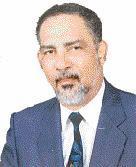
Howard Hamilton THERE HAVE been a number of requests for a summary of the evolution of the racing industry as detailed in the recent series: WHAT WENT WRONG.
It is accepted that the industry has failed to achieve its true potential as an important source of entertainment, employment, career development and continuous investment. Thoroughbred racing should be a major tourist attraction in a sector of our economy which is urgently in need of added attractions.
We will attempt a summary of the points raised in the recent series of articles in the hope that this will generate some comments and discussion.
The opening of Caymanas Park in 1959 was heralded as the greatest step forward in local sport. This state-of-the-art racing facility saw the coming together of the two promoting companies - Jamaica Turf Club, operators of Little Marlie in Old Harbour, and Knutsford Park, operators of the Knutsford Park racetrack in Kingston.
Cash flow problems
From the very outset the new privately owned promoting company was beset with cash flow problems. The maintenance of the new facilities far exceeded original estimates, and sales were seriously affected by a growing illegal off-course operation from which the promoters received no income.
Cash injection from the Lai Corporation did not achieve what was projected. Maintenance of the facilities suffered. The situation became worse when the roof started to collapse and had to be held in place by some unsightly wooden poles.
Government acquisition
Many are the stories of poles falling away when there was a high wind, causing the roof to lift. This, coupled with the expensive resurfacing of the track, was the final chapter in the life of Caymanas Park Ltd. The fate of the industry was further determined by the compulsory acquisition of the assets by the Government in 1989.
The expanding off-course operation was eventually legalised in 1965. All attempts at stopping the illegal operation proved to be futile. There was no serious effort on the part of the authorities to control this activity since it was felt that the only person being affected was the privately owned promoting company.
The powers that be failed to appreciate that if the promoter suffered then all stakeholders also suffered. These operators were initially mainly involved with developing overseas racing opportunities, but local racing soon became the main source of income.
There is no doubt that the off-course operators served to popularise the sport by providing islandwide distribution. The promoting companies never embraced the operations of these 'bookmakers' and kept lobbying for a tote monopoly.
Although the Government benefited substantially from the various taxes imposed, very little of this came back to the industry. We have had a long period when the bookmakers handled more than 70 per cent of the turnover generated by the activity of the promoting company, with very little revenue channelled back to the promoters from the taxes which the Government imposed.
The major factor which has been the most serious challenge facing the various promoting companies has been the level of taxation. None of the agencies responsible for setting taxation policy has ever seriously examined the capacity of the industry to pay the levels of taxation which have at various times been imposed.
Borrowed money
Every promoting company has had a problem paying the taxes imposed. They have all had to borrow money to meet their tax commitments, and every single one has ended up owing the Government money.
In fact, this was the reason put forward at the time for the compulsory acquisition of the assets of Racing Promotions Ltd. The failure of that company had nothing to do with its participatory structure, as one would have us believe.
We would have thought that these continuing failures would be a signal that something was wrong and an attempt made to correct it. Even today we hear of a restructured tax policy which should have been announced on July 1. We are still waiting but none of us are very hopeful that there will be any significant changes.
The fact is that racing is not a taxable activity. Just look at what is done in other countries and one will appreciate that taxes are earned from the value-added indirect taxes which increase with the level of success of the industry.
In conclusion, my opinion is that the demise of the racing industry is due entirely to the Government's iniquitous taxation policy and the failure of successive promoting companies to incorporate the activities of the bookmakers into their on-track activities.

